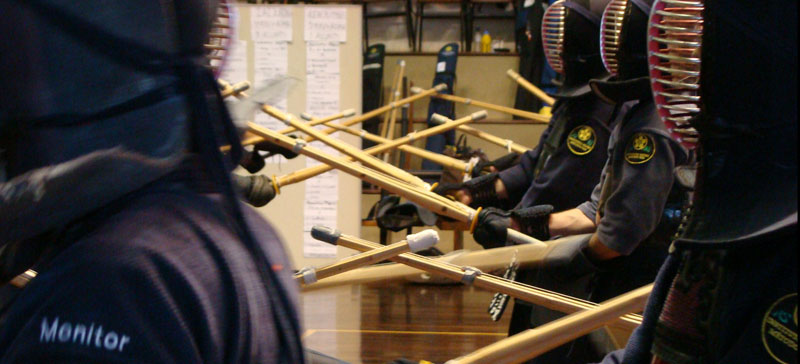
Kendo/Kenjutsu
Know more about Kendo and Kenjutsu in Niten Institute – The origins, techniques and visits from other dojo
Brief History of Niten Institute
The Niten Institute was created in 1993 in Brazil with the goal to spread the Warrior Traditions of the Samurai in Latin America.
Its founder, Sensei Jorge Kishikawa, is one of the most important figures in the history of Kendo in Brazil. Holds the higher grade in Brazil (7th dan Kyoshi). He was 10 times champion in national Kendo Tournaments and participated of some of the most important achievements of Brazilian Kendo, such as the first medal in individual competition in World Kendo Championships and two times 2nd place in the team competition.
He also has deep knowledge in the old schools, know as Kobudô or Koryu Budo. Holds Menkyo Kaiden in Niten Ichi Ryu, the school created by Miyamoto Musashi, and is the South America representative of the Suio, Shindo Muso and Tenshin Shoden Katori Shinto schools.
The Niten Institute has today more than 40 dojo spread over Brazil, Argentina and Chile, where around 800 people practice
the Kobudo traditions.
To propagate these arts and the Japanese culture among Latin Americans, the Institute counts upon special social programs to people willing to learn but who can't afford the costs. With the scholarship the monthly fees are symbolic.
In Niten Institute, the Kobudô schools are practiced divided in three arts: Kenjutsu, Iaijutsu and Jojutsu.
Kenjutsu and Kendo in Niten Institute
In Niten Institute, Kenjutsu includes the training of Kendo, the art in which Sensei Jorge Kishikawa started his training more than 40 years ago, and goes beyond, including techniques and stances that were left aside when kendo was elaborated.
Among such techniques, we can find Soete waza and Uchi kote:
Soete Waza refers to a set of techniques that used the left hand to grab the back of the blade. These techniques can be found in schools such as:
The denomination soete refers to the act of using the supporting hand to have greater precision and be able to strike from a closer distance (tsuba zeriai).
Uchi Kotê are upward cuts to the inner region of the forearms. Because this area is unprotected, the uchi kote is a cutting movement (both hikigiri and oshigiri), not a hitting one,
as done in the usual kote strike, in the superior, protected area. The uchi kote can be found in many kenjutsu schools, such as Niten Ichi Ryu, Suio ryu, Onoha Itto Ryu, Kasumi Shinto Ryu, Katori Shinto Ryu among others.
These and other techniques practiced in Niten Institute can be seen in the video bellow:
Training safely
In Kenjutsu practice we give great importance to safety. Sensei Jorge Kishikawa is a sports physician and has acted as such
in the Armed Forces, in one of the main hospitals of the Brazilian Army, and among other places as well. He has acted also in
traumatology area, and even in the Brazilian Army sportive competitions. Sensei was also the first physician to represent
the Brazilian Kendo Federation, during its early years.
Through his medical experience, Sensei guides his students to practice the techniques in a safe way. Techniques such as tsuki are done with light contact, and not using excessive force.
The Sword that brings life
The Niten Institute promulgates the sword that brings life...and contributing to make the world a fairer place.
During the last decade, the Institute contributed with many social programs and helped many associations, among others:
These donations, and the mentioned programs of scholarship and help to students public schools are demonstrations of compassion, a very important virtue to the Samurai, always present in the actions of the Niten
Institute.

topo
 Home Niten
Home Niten
 +55 11 94294-8956
+55 11 94294-8956